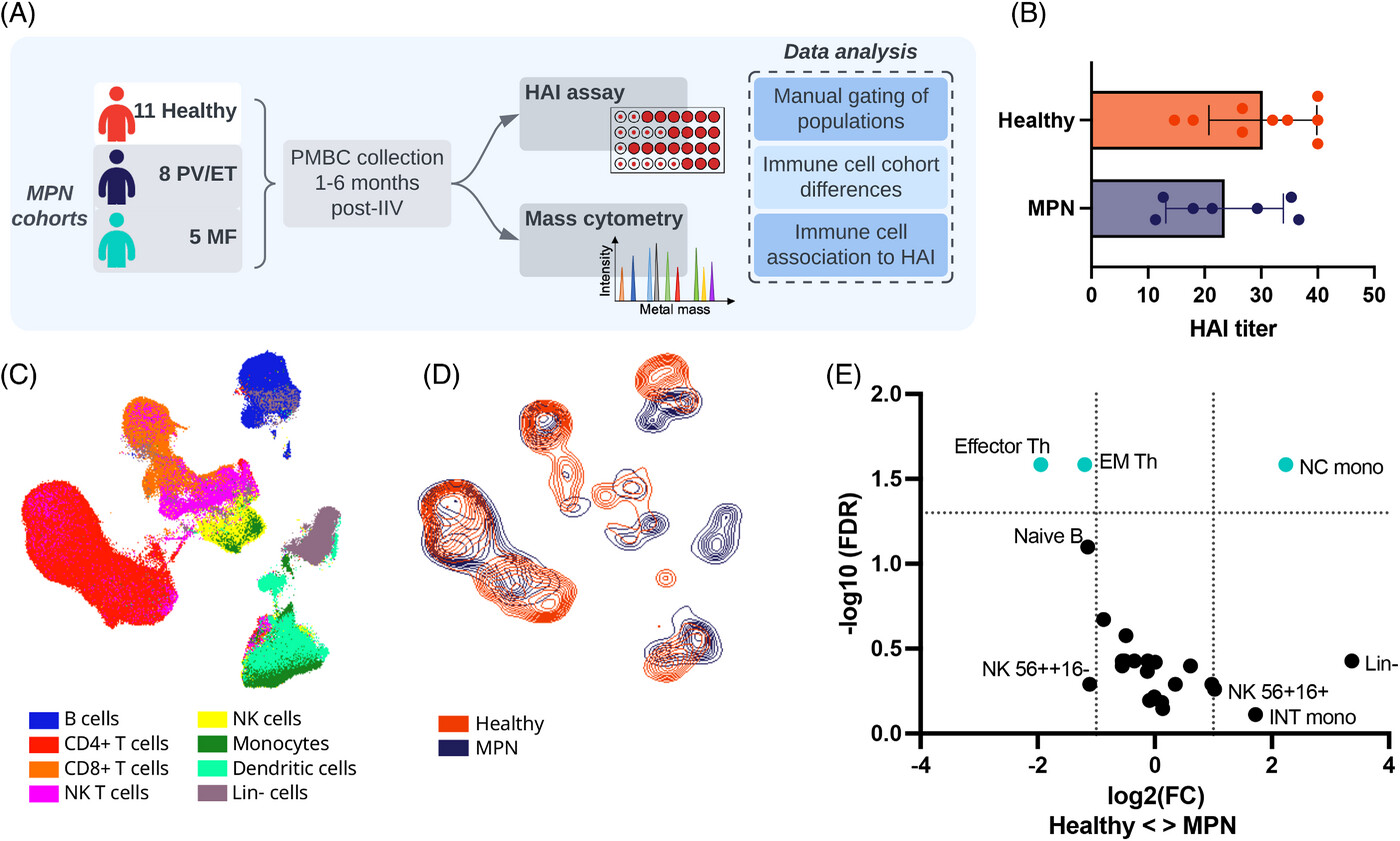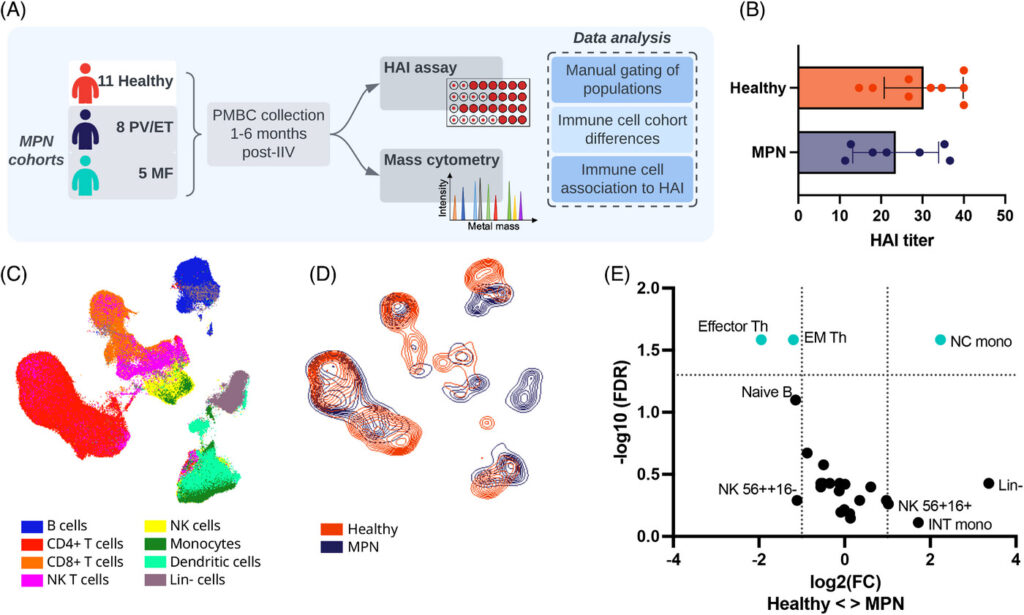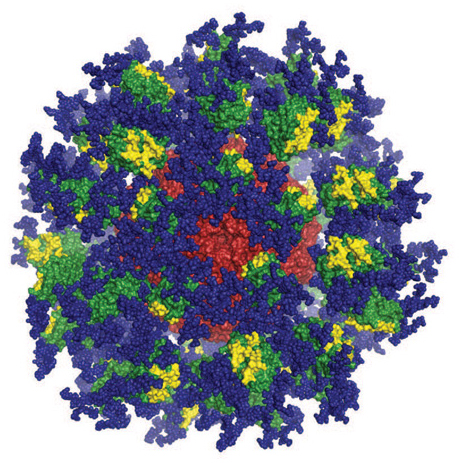The Reeves lab recently published a study in eJHaem exploring the immune system in patients with myeloproliferative neoplasms (MPNs), a type of rare blood cancer. These patients are particularly vulnerable to infections and often require immunosuppressive drugs, highlighting the importance of effective vaccination. Our study found that MPN patients exhibit significant changes in immune cells, including decreased effector and memory T cells and reduced maturation marker expression on B cells. These changes imply that specific cells do not effectively travel to the lymph nodes for maturation, potentially leading to a compromised immune response and lower levels of protective antibodies after influenza vaccination. Our findings emphasize the need for further research into the immune dysregulation in MPNs and its impact on vaccine efficacy, aiming to improve vaccination strategies for this at-risk population.
Novel HIV vaccine approach shows promise in first-in-human clinical trial
Early findings from a publication between Scripps Research, IAVI, Dred Hutch, VRC, and other collaborators show encouraging results in hopes of boosting immunity against HIV. In the first- in-human test of the germline-testing strategy, the novel HIV vaccine approach showed promise, inducing broadly neutralizing antibodies (bnAbs), a rare antibody, previously indicated to protect against a wide range of HIV variants. Through the stimulation of the bnAb immune cells- precursor B cells, researchers have accomplished the first step to potential immunity against HIV.




